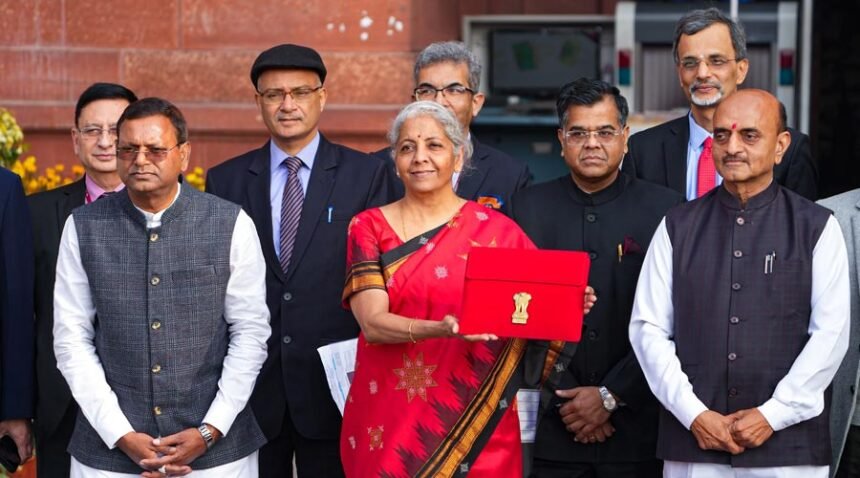Budget is a highly anticipated event for stock market investors, influencing investor sentiments significantly. This year’s budget is significant as it is the first under the BJP-led Modi government, which lacks a full majority. This raises the question of whether the interests of alliance parties will be considered in the budget presentation.
The government may be tempted to take populist measures to attract voters, especially with upcoming assembly elections in Maharashtra, Haryana, and Jharkhand. Maharashtra, in particular, holds substantial economic power.
Any finance minister will always find it challenging to please all sections of society. Therefore, when anticipating budget announcements, it is crucial to adopt a practical approach, considering what is feasible and what is not. The government has set a fiscal glide path for the fiscal deficit, making it critical to balance income and expenses to maintain this trajectory.
Given these factors, I am proposing my budget wish list for the finance minister:
Consistency in Policy Action
Consistency is essential for any effective government policy. The budget should clearly outline what the government intends to achieve over the next five years regarding reforms and fiscal measures. This clarity will help corporations plan their businesses. The government has announced a fiscal deficit glide path, but similar clarity is needed on reforms such as stake reductions in public sector units, India’s role in combating global warming, and policy actions to accelerate the adoption of electric vehicles (EVs). This will help India Inc. understand which areas to focus on for growth. Avoiding abrupt decisions, like the ban on steel exports or restrictions on using sugar for ethanol impacts business plans of India Inc.
Clarity on Capital Gains
Before every budget, the market becomes anxious about capital gains. Some in the Ministry of Finance believe that all capital assets should be treated equally. Currently, equity enjoys special treatment. In 2018, India removed the exemption on long-term capital gains on equity, and since then, the market has risen by more than 100 percent. Globally, short-term capital gains are typically taxed at personal income tax rates, while long-term gains are usually taxed at 20 percent. The government should make this change now while the market is strong. However, to mitigate the impact of higher capital gains tax, the government should eliminate the Securities Transaction Tax (STT). This approach would encourage long-term investment over trading, as the current capital gains differential is only five percentage points between short and long-term investments.
Adhering to the Fiscal Deficit Glide Path
A closely monitored aspect of the budget speech is the fiscal deficit statement. The interim budget announced a glide path aiming for a fiscal deficit of 4.5 percent by FY2026. The best result achieved was 3.4 percent in FY2019, before the COVID-19 pandemic disrupted progress in 2020. While some argue that a growing economy like India needs a fiscal deficit, the ideal goal should be to reduce the fiscal deficit below 3 percent within the next five years.
China Plus One Policy Competitiveness
India has a unique opportunity to capitalize on global anti-China sentiments. Many developed countries are looking to reduce their dependence on China by sourcing goods and services from other Asian countries. To compete effectively with China, India needs to develop world-class infrastructure, reduce logistic costs, and improve turnaround times. Although the government has accelerated capital expenditure, more needs to be done. The record RBI dividend this year should primarily be used to increase capital expenditure allocation. Delaying improvements in India’s competitive strength means missing out on a rare opportunity.
Preparing India for AI
Artificial Intelligence (AI) is rapidly transforming the world, and this trend will only accelerate. Instead of playing catch-up, India should lead from the front. The budget should allocate higher funds and incentivize AI adoption to enhance India’s competitiveness. Colleges should be incentivized to teach AI may be at subsidised rate, preparing the future generation for this technology. India should aim to be disruptive with AI rather than being disrupted by it.
Tax Rebate to Spur Consumption Boom
No budget wish list is complete without expectations of tax rebates. Five years ago, the government offered substantial tax rebates to corporations, which resulted in higher net profits and dividends, boosting the stock market. However, current tax rebates have not kept pace with inflation. It is time to adjust tax rebates for inflation and offer personal income tax rebates to spur consumption growth, which will, in turn, stimulate the capital expenditure cycle. The finance minister must remember that higher tax rebates could lead to higher inflation. Therefore, tax rebates should be reasonable to avoid significant inflationary Pressures.
(Press the bell 🔔 Icon, for all latest updates)






